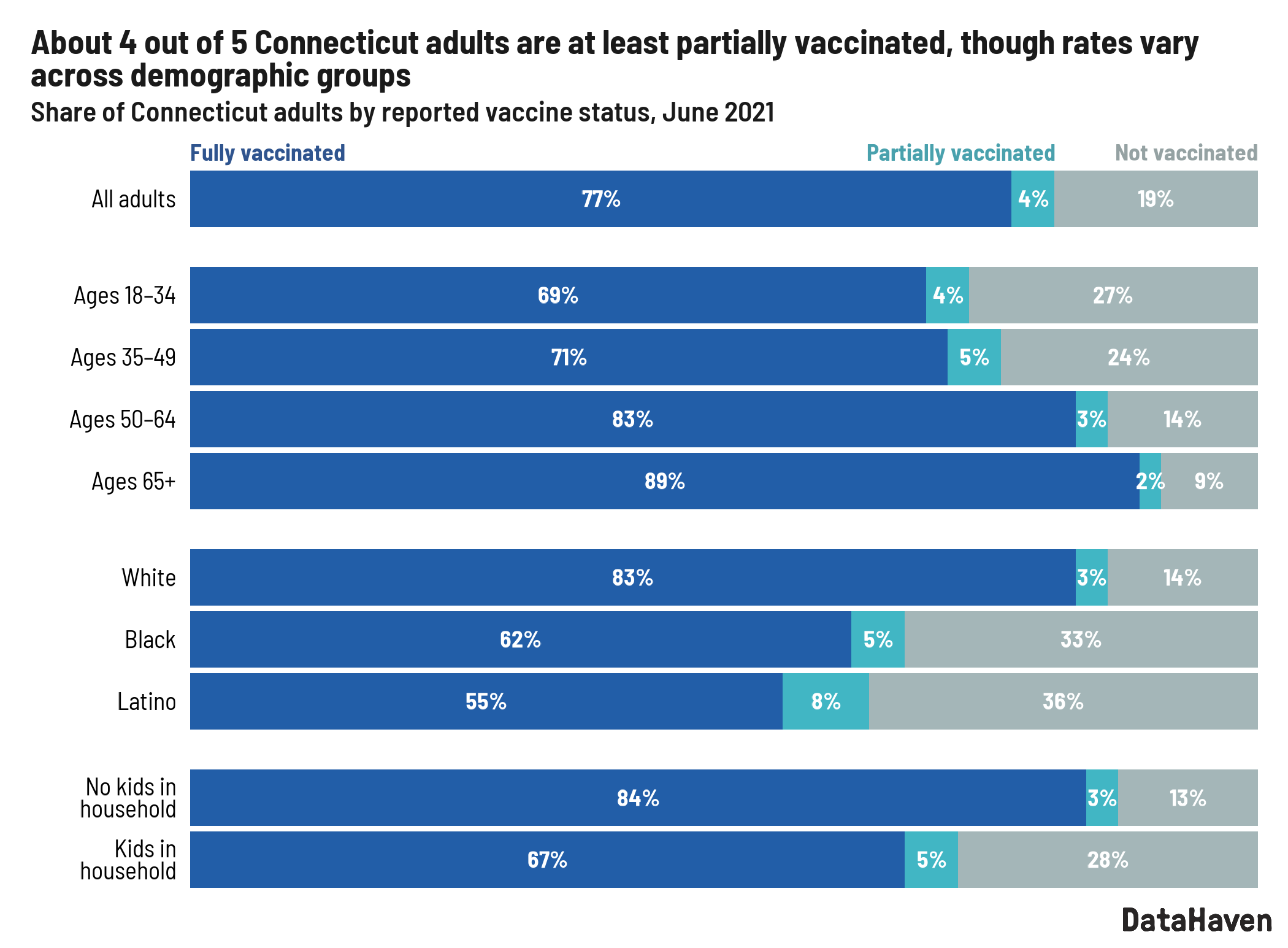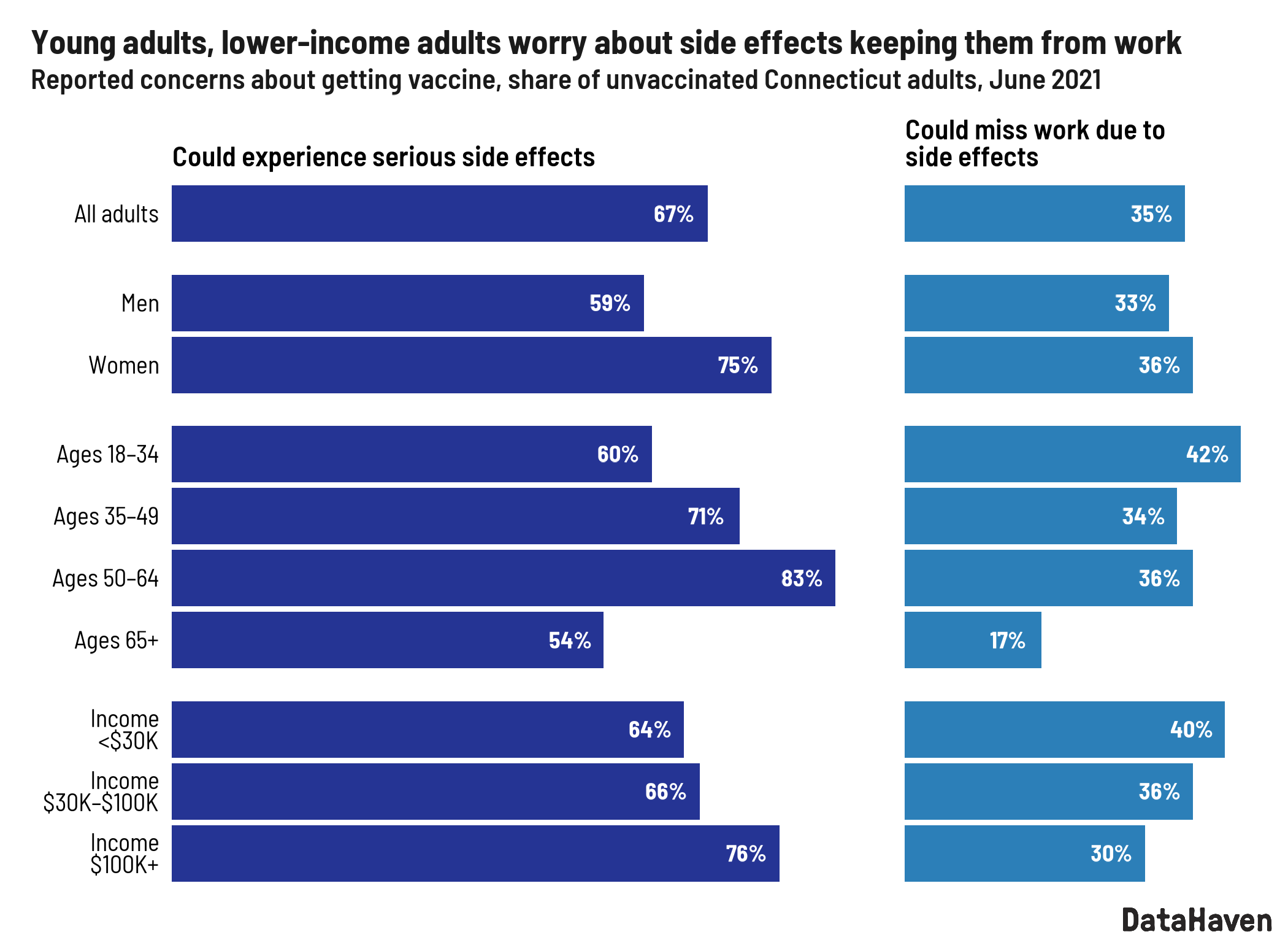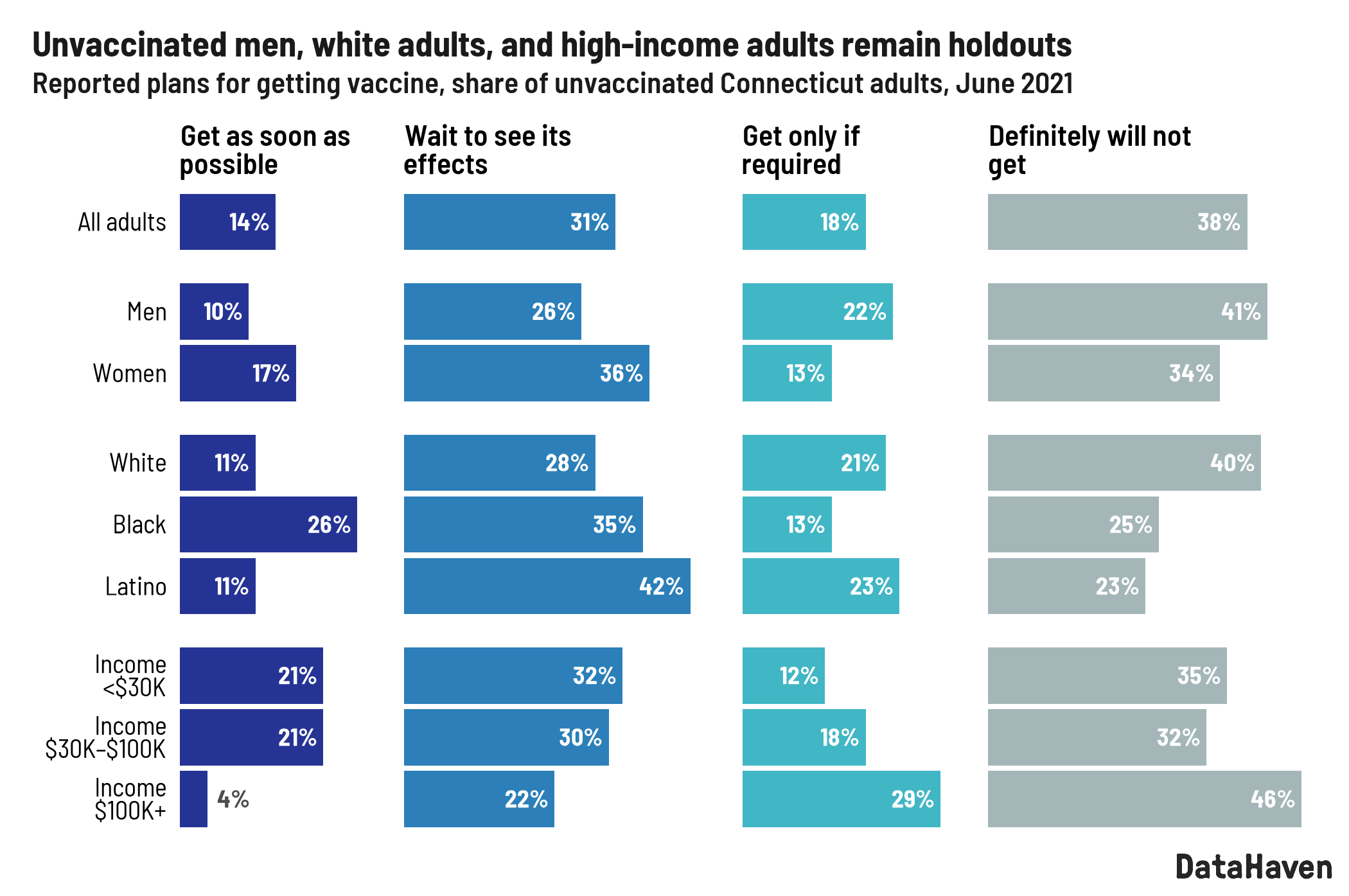All DataHaven Programs, Community Wellbeing Survey, Health
June interviews with 1,616 randomly-selected Connecticut adults reveal continuing need for vaccine equity, concerns about time off from work
Please scroll down for graphics
NEW HAVEN, CT, July 2, 2021 – New results from DataHaven’s ongoing statewide survey show that access to and concerns about COVID-19 vaccines remained prevalent throughout Connecticut last month. Despite the state’s relatively high vaccination rate, 1 in 5, or about 500,000, adults in the state still have not received the vaccine.
According to survey data collected throughout June 2021, 36% of Connecticut adults who are not yet vaccinated (or 7% of all adults) say they will definitely not get the vaccine. However, the majority of unvaccinated adults say they are either waiting to see how it is working for other people, will get the vaccine if required for work or other activities, or will get it as soon as they can. This suggests an opportunity to significantly boost statewide vaccination rates over time.
Side effects and missed work remain top concerns for unvaccinated adults. The majority (66%) say they are very or somewhat concerned that they might experience serious side effects from the vaccine. Additionally, among working adults who are not yet vaccinated, nearly 40% are concerned that they might need to miss work due to side effects, and 10% are concerned they may need to take time off from work to get an appointment.
Among unvaccinated adults, other common concerns include being able to get the vaccine from a trusted provider (15% concerned, with that figure rising to 32% among those living in the state’s large cities), needing to pay out of pocket to get the vaccine, even though vaccines are free (13% concerned, rising to 20% among those who identify as Black or Latino), and difficulty traveling to a vaccination site (5% concerned, rising to 11% among seniors).
Additionally, 28% of unvaccinated adults are concerned they might get COVID from the vaccine, even though that is not possible. This figure rises to nearly half of unvaccinated adults in the state’s large cities. According to DataHaven, these data illustrate that residents in Connecticut’s urban areas are disproportionately impacted by the deliberate spread of misinformation about vaccines.
The preliminary results also confirm that, as of June, Connecticut adults who consider themselves to be Republicans or Republican-leaning Independents are two to three times more likely to say they have not received the COVID-19 vaccine than adults who consider themselves to be Democrats. Adults who say they do not trust local healthcare providers, as well as adults who say that local government does a poor job responding to the needs of their community, are also two to three times more likely to be unvaccinated than other adults.
“By breaking down Connecticut’s experiences with the COVID-19 vaccine along the lines of age, gender, race, local geography, and social attitudes, this survey reveals an ongoing need for attention to vaccine equity in Connecticut, including by supporting trusted, community-based healthcare and social service providers and ensuring that residents feel their voices are heard,” says Mark Abraham, Executive Director of DataHaven, a non-profit organization that leads the collection and study of public data about Connecticut. “The state is doing very well on COVID metrics right now, but if these longstanding concerns are not addressed, the metrics could change this fall when respiratory viruses are likely to become more active again.”
DataHaven released the information based on live, in-depth interviews with 1,616 randomly-selected adults conducted during June 2021. Among respondents, 1,133 identified as white, 355 as Black or Latino, and 304 as residents of the state’s large cities. The June interviews represent just a small subset of those being conducted by the DataHaven Community Wellbeing Survey, a program supported by over 75 of the state’s leading community foundations, United Ways, hospitals, and public agencies, as well as an Advisory Council of over 300 community organizations, researchers, and epidemiologists. Tens of thousands of residents throughout Connecticut will be receiving phone calls from survey-takers at the Siena College Research Institute and DataHaven throughout the spring, summer, and fall of 2021.
Since 2012, about 50,000 representative adults living in every ZIP code in Connecticut have volunteered their time to participate in interviews, including more than 10,000 interviews projected to take place by the end of 2021. To ensure that results are an accurate representation of the entire adult population in Connecticut, all results are weighted by factors such as age, gender, race/ethnicity, and geography.
The DataHaven survey also measures a host of high-priority issues such as experiences with COVID-19, public safety, neighborhood quality of life, individual health and financial well-being, and access to local services including affordable food, housing, and healthcare. As thousands of interviews continue throughout the year, results will be released periodically to inform current policy issues. Similar to previous years, the DataHaven Community Wellbeing Survey will release robust information for the state and all of its towns and regions once interviews are completed.
“If contacted by Siena College and DataHaven, we encourage residents to participate in these anonymous and confidential interviews about life in your neighborhood – answer the call and help improve your community,” said Abraham.



